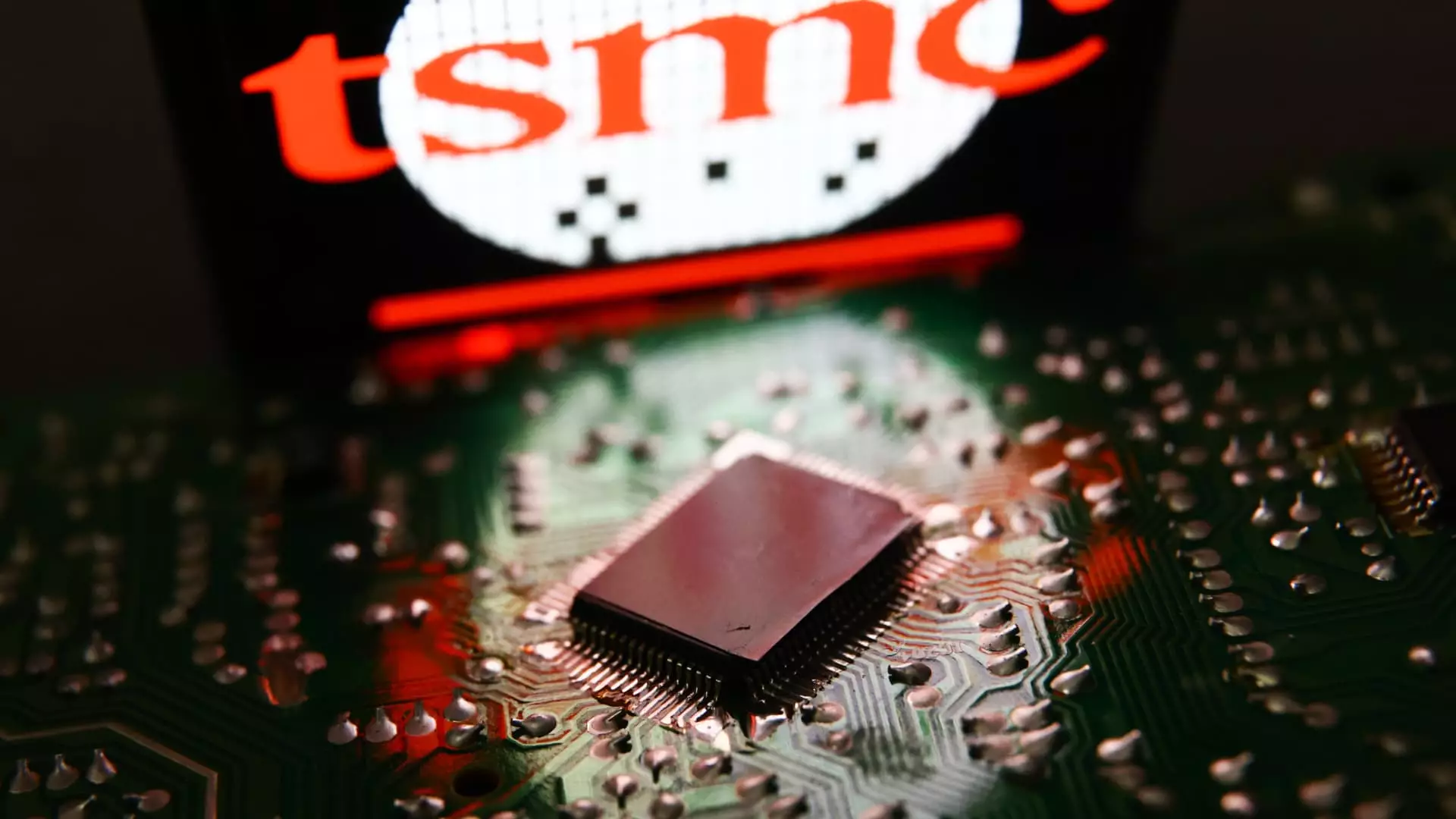The ongoing geopolitical tensions between the U.S. and China have increasingly brought the semiconductor industry into the spotlight, particularly as both countries vie for dominance in advanced technologies like artificial intelligence (AI). Recently, the U.S. Department of Commerce ordered Taiwan Semiconductor Manufacturing Company (TSMC) to halt shipments of high-end chips to Chinese customers, raising significant concerns over innovation, economic dependencies, and compliance with trade regulations. This measure underscores a broader strategy aimed at curbing China’s technological advancements, especially in fields that could enhance its military capabilities.
As the global landscape evolves, the semiconductor supply chain has emerged as a crucial battleground. The U.S. authorities have noticed the strategic importance of companies like TSMC, which serve as vital suppliers in the tech supply chain. By restricting the export of chips employing 7-nanometer technology and more advanced designs—capabilities that are central to many AI applications—the U.S. seeks to inhibit China’s growth in this critical area.
This latest initiative follows revelations that a TSMC chip was found in Huawei’s AI processor. Huawei, a company already identified as a national security risk, raises serious alarms for U.S. policymakers concerned with technology transfer and potential military applications. Allegations of violations concerning export controls serve as a catalyst for these stringent measures.
The ramifications of these export controls are vast, impacting not just TSMC but also a multitude of companies across the semiconductor landscape. By banning shipments of advanced chips to China, the U.S. is not merely aiming to stifle competition; it is also sending a clear message to any suppliers that engaging with blacklisted companies such as Huawei can incur severe repercussions. The resilience and adaptability of the semiconductor industry will be put to the test as firms navigate the new landscape created by these restrictions.
Moreover, this decision emphasizes the complex web of dependencies within the tech supply chain. China’s substantial investments in its semiconductor sector may not yet suffice to make the country independent from foreign technology, especially in advanced applications. Thus, the restrictions compel Chinese companies to reassess their strategies and potentially expedite their innovation timelines, hoping to develop alternatives that could bypass American technology altogether.
TSMC’s adherence to U.S. laws complicates the situation. While the company expressed commitment to complying with all applicable regulations, the ambiguity surrounding export controls raises critical questions regarding enforcement. As the Biden administration grapples with the nitty-gritty of tech export legislation, the enforcement of these restrictions appears reactive rather than proactive. TSMC’s prior notification to the Commerce Department regarding the found chip indicates a need for clearer guidelines for suppliers navigating these treacherous waters.
As history shows, the semiconductor industry is fraught with challenges in balancing regulations and the need for innovation. Every measure taken by the U.S. to restrict advanced chip exports must be carefully articulated to prevent unintended consequences, such as delaying advancements that could benefit global markets.
As policymakers assess the long-term repercussions of these export restrictions, the landscape of international trade in advanced technologies remains uncertain. U.S. lawmakers, both Republican and Democrat, express concerns about the adequacy of existing export controls, demonstrating bipartisan recognition of the urgency in addressing these challenges. With intentions to reinforce the sanctions further by including more Chinese companies under scrutiny, the U.S. finds itself caught in a delicate balancing act.
The race for semiconductor superiority will undoubtedly continue, driven by the relentless pace of technological advancements. As countries vie for leadership in AI capabilities, the stakes become increasingly high, making the semiconductor industry an essential area for future economic and security strategies. The impact of current restrictions on TSMC and the broader global semiconductor market will unfold in the coming months, reshaping alliances, competitors, and the landscape of technological innovation.


Leave a Reply